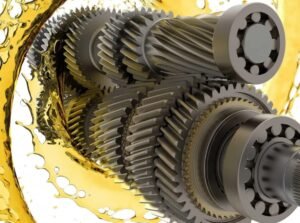
How to chose Industrial Gear Oil in Nigeria : Maintenance for Factory & Plant Machinery
How to chosse Industrial Gear Oil in Nigeria : Maintenance for Factory & Plant Machinery Get In Touch In the relentless environment of Nigerian industry—from
Your vehicle is a complex symphony of moving parts, a crucial partner in navigating the vibrant yet demanding landscape of Nigeria. From the bustling, pothole-marked streets of Lagos to the long, hot stretches of the Abuja-Kaduna expressway and the dusty, untarred paths of rural areas, your car, truck, or motorcycle is constantly under assault. While engine oil changes are a well-known ritual, the silent guardian of your vehicle’s undercarriage and moving parts—grease—is often overlooked.
Making an informed choice about grease is not merely a maintenance task; it’s a critical decision that impacts safety, operational costs, and vehicle longevity. This in-depth guide moves beyond basic advice to give you a masterclass in grease selection. We will dissect its chemistry, decode its labels, and provide a clear action plan tailored to the Nigerian environment, ensuring your vehicle remains reliable for years to come.
To choose wisely, one must understand what grease truly is. It is not merely thick oil. Think of it as a sophisticated, three-component matrix engineered for specific purposes:
Base Oil (The Workhorse): This is the primary lubricating fluid, constituting 70-95% of the grease. Its quality dictates the grease’s fundamental lubricity and temperature range.
Mineral Oil: Derived from petroleum, it’s cost-effective and suitable for standard applications and temperature ranges. However, it oxidizes and breaks down faster at extreme temperatures.
Synthetic Oil: Chemically engineered molecules (Polyalphaolefin – PAO, Esters) provide superior performance. They offer a wider temperature operating range (excellent for both Nigerian heat and cold starts), resist oxidation, and provide longer service life. The trade-off is a higher cost.
Thickener (The Sponge): This is the soap-like structure that holds the base oil in place, giving grease its semi-solid consistency. The thickener type is the primary classifier for grease and determines its resistance to water, heat, and mechanical shear.
Lithium Soap (Li): The traditional king of multi-purpose greases. It offers a good balance of water resistance, mechanical stability, and temperature tolerance (up to ~135°C).
Lithium Complex (Li-X): An advanced version of lithium soap. Through a complexing process, it significantly raises the dropping point (the temperature at which it turns to liquid, often above 260°C) and improves load-carrying capacity. This is often the recommended upgrade for modern vehicles.
Calcium Sulfonate (Ca-S): A premium thickener gaining popularity. It offers exceptional protection against rust and corrosion, very high load-carrying ability (Extreme Pressure), and excellent thermal stability. It’s inherently “rust-inhibitive,” a huge advantage in humid and rainy Nigerian climates.
Polyurea (PU): Common in sealed-for-life components like constant velocity (CV) joints in front-wheel-drive cars. It has excellent oxidation stability (long life) but can be less water-resistant than other types and is often incompatible with different thickeners.
Additives (The Superpowers): These chemical compounds, making up 1-10% of the grease, are what tailor it for specific tasks.
Anti-Wear (AW) & Extreme Pressure (EP): These are crucial. AW additives protect under moderate loads, while EP additives (like Sulfur, Phosphorus, and Molybdenum Disulfide) form a protective sacrificial layer on metal surfaces under very high loads, preventing welding and scoring. Molybdenum Disulfide (Moly) is a solid lubricant that acts like “slippery plates,” providing lubrication even if the oil film fails.
Rust & Corrosion Inhibitors: Essential for combating the humidity and rain of the Nigerian rainy season.
Oxidation Inhibitors: Grease, like oil, reacts with oxygen, especially when hot, leading to hardening, varnish, and loss of lubricity. These additives slow this process.
Tackifiers: These additives help the grease adhere to surfaces, preventing it from being thrown off by centrifugal force in high-speed components like wheel bearings.
Understanding local conditions is key to selecting the right grease. Nigeria presents a “perfect storm” of challenges:
Particulate Onslaught (Dust & Sand): Fine, abrasive dust is the enemy of grease. It acts as lapping compound, accelerating wear on bearings, seals, and joints. A grease with good sealing properties and a robust thickener system is vital.
Thermal Stress: Ambient heat combined with braking and engine heat can push component temperatures well beyond the limits of cheap greases, causing them to thin out and run, leaving parts unprotected.
Hydroscopic Assault (Humidity & Water): High humidity promotes rust and corrosion. During the rainy season, water ingress can wash away grease or emulsify it, turning it into a useless, milky substance. Water resistance is non-negotiable.
Dynamic & Static Loads: Overloading is common. Whether it’s a sedan packed with passengers or a truck carrying heavy goods, the grease in wheel bearings, ball joints, and U-joints must withstand immense pressure without breaking down.
Step 1: The Component-Specific Grease Matchmaking
| Vehicle Component | Primary Demands | Recommended Grease Type | Key Specifications to Look For | Nigerian-Specific Consideration |
|---|---|---|---|---|
| Wheel Bearings | High-speed, high-temperature, oxidation stability. | Lithium Complex (Li-X) or High-Quality Synthetic Grease. | NLGI #2, EP (GL-4/5), high dropping point (>260°C). | Dust seals are critical. A grease that resists washout from deep puddles is key. |
| Ball Joints, Tie-Rods (Chassis) | Extreme Pressure (EP), shock load resistance, water resistance. | Lithium Complex (Li-X) EP or Calcium Sulfonate Complex. | NLGI #2, EP (e.g., Timken OK Load >45 lbs), high water resistance. | These points are exposed to the elements. A rust-inhibitive grease like Calcium Sulfonate is ideal. |
| Universal Joints (U-Joints) | Very High EP, adhesion. | Molybdenum Disulfide (Moly) fortified Lithium Complex Grease. | NLGI #2, EP, clearly states “Contains Moly” or “Moly fortified.” | For 4x4s, SUVs, and vehicles used on rough terrain, Moly grease is a must-have. |
| CV Joints (Front-Wheel Drive) | Constant velocity, high torque, long-life. | Often a specific Polyurea grease. Check owner’s manual. | Exact OEM specification. Often a专用 (special) grease. | Do not substitute with standard grease. Using the wrong type can destroy expensive CV joints. |
| General Purpose / Multi-Vehicle | A balance of all properties: heat, water, and load resistance. | Lithium Complex Multi-Purpose Grease. | NLGI #2, EP, Lithium Complex. | This is the safest “one-grease-fits-most” solution for the average car owner. A brand like R8 Drive Lubricants often offers a high-performance multi-purpose grease that meets these rigorous demands, providing a reliable and accessible solution for Nigerian motorists. |
Step 2: Becoming Fluent in Grease Label Language
Decoding the tube is your key to confidence.
NLGI Grade: The hardness. NLGI #2 is the standard for automotive use. NLGI #00 or #0 is softer, used in central lubrication systems. NLGI #3 is stiffer, for slow-moving, heavily loaded equipment.
NLGI Consistency Chart:
NLGI 000: Semi-fluid – Almost liquid, for centralized systems.
NLGI 00: Soft – Like mustard, for low-temperature applications.
NLGI 0: Very Soft – Like tomato ketchup.
NLGI 1: Soft – Like mayonnaise.
NLGI 2: Standard – Like peanut butter. (Most Common for Automotive)
NLGI 3: Firm – Like frozen peanut butter.
NLGI 4: Very Firm – Like cheddar cheese.
Performance Marks: Look for “EP” (Extreme Pressure) and certifications like those from the National Lubricating Grease Institute (NLGI) or automotive manufacturers (e.g., GM, Ford, Mercedes-Benz specifications).
Step 3: The Thickener Showdown – Pros and Cons
| Thickener Type | Pros | Cons | Best For Nigerian… |
|---|---|---|---|
| Lithium (Li) | Good multi-purpose properties, cost-effective. | Moderate temperature range, can be washed out by water. | Older vehicles, basic applications where cost is the primary driver. |
| Lithium Complex (Li-X) | Excellent all-rounder. High dropping point, good water resistance, good mechanical stability. | More expensive than simple Lithium. | Almost everything. The recommended default choice for most car owners. |
| Calcium Sulfonate (Ca-S) | Exceptional rust protection, very high EP, excellent water resistance, long life. | Typically the most expensive option. | Coastal areas, rainy season, heavy-duty vehicles, and extreme rust prevention. |
| Polyurea (PU) | Excellent oxidation stability (long life), good high-temperature performance. | Poor water resistance, often incompatible with other thickeners. | Sealed-for-life components (CV joints) where specified by the manufacturer. |
The Synthetic Advantage: While more expensive per tube, synthetic grease can be more cost-effective in the long run. It lasts longer, protects better under extreme heat, and can extend regreasing intervals. For vehicles subjected to severe service (taxis, long-distance travel, frequent heavy loads), the investment in a high-quality synthetic grease pays dividends in reduced downtime and repair costs.
The Criticality of Compatibility: As a rule, do not mix greases with different thickeners. A Lithium Complex grease mixed with a Polyurea grease can cause a catastrophic breakdown of the thickener matrix, turning the grease into a runny liquid or a hard block. If you are unsure of the previous grease, thoroughly clean the component (with a solvent like kerosene and compressed air, if possible) before applying the new grease.
The Art of Application:
Over-greasing: Forces grease past seals, contaminating brake pads (wheel bearings) or dust boots (ball joints). The pressure can damage the seals themselves.
Under-greasing: The more common and destructive error. It leads to metal-to-metal contact, heat buildup, and rapid component failure. When greasing a nipple, pump until you see the rubber seal just begin to swell or until clean grease is purged from the relief point.
In the challenging operating environment of Nigeria, the grease you choose is a direct reflection of how much you value your vehicle’s health and your own safety. It is a small component with an outsized impact on your total cost of ownership.
By moving beyond a generic, one-size-fits-all approach and embracing a component-specific, knowledge-driven strategy, you transition from a reactive owner to a proactive guardian of your vehicle. Investing in a high-quality, appropriately specified product—whether a versatile Lithium Complex grease for daily use or a specialized Moly-fortified grease for high-stress components—is one of the smartest investments you can make.
Brands that have built a reputation for quality, such as R8 Drive Lubricants, understand these nuances and formulate their products to meet these exacting standards. Your vehicle endures the unique stresses of Nigerian roads every day. Give it the precise protection it needs, and it will repay you with unwavering reliability, ensuring you conquer every journey, from the daily commute to the long-awaited road trip, with confidence and peace of mind.

How to chosse Industrial Gear Oil in Nigeria : Maintenance for Factory & Plant Machinery Get In Touch In the relentless environment of Nigerian industry—from
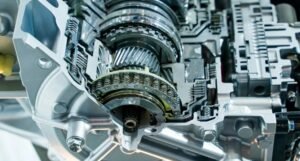
How to Choose Between Synthetic and Conventional Transmission Oil In Nigeria? Get In Touch In Nigeria, where the vehicle is not merely a mode of
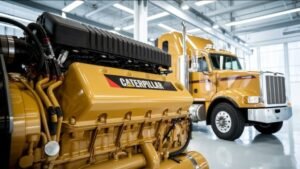
How to Choose the Most Durable Diesel Engine Oil in Nigeria? Get In Touch In Nigeria’s demanding operating environment—from Lagos traffic to northern desert routes—diesel
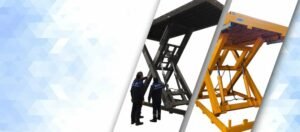
Sourcing Quality Hydraulic Oil in Nigeria: A Buyer’s Checklist Get In Touch In the dynamic and demanding landscape of Nigerian industry—spanning robust sectors like construction,
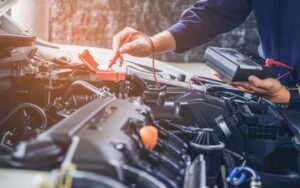
Solve This: Top Signs Your Car Needs a Fuel Injector Cleaner in Nigeria Get In Touch In Nigeria’s demanding driving conditions—from Lagos traffic jams to
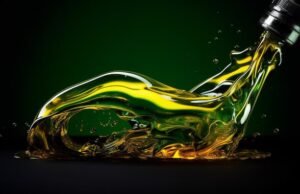
Group III Base Oil Suppliers Nigeria | High Viscosity Index Base Stocks Get In Touch The Nigerian industrial and automotive landscape is undergoing a silent